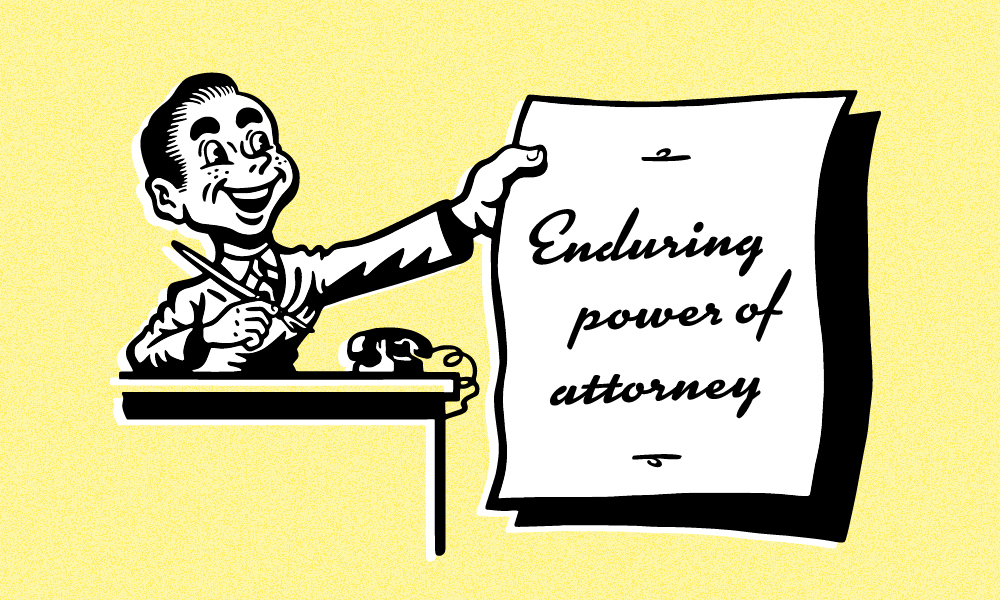It is standard practice for many firms to ask new clients if they have a current will, and of course offer to draft one if the answer is no.
Asking whether they have an Enduring Power of Attorney (EPOA) might be even more worthwhile, for both solicitor and client.
Powers of Attorney have been around in some form or other for centuries,1 and are an invaluable failsafe for any client. Whether handling a cottage conveyance, family law matter, commercial dispute or doing estate work, a valid EPOA can mitigate risks and avoid costly damage control should a client lose capacity mid-matter.
Although capacity issues can be front of mind when dealing with elderly clients, it is important to remember that any client can lose capacity at any time. Car accidents, falls, an aneurysm and even severe illness can lead to temporary or permanent loss of capacity – and if the client does not have an EPOA, expensive and time-consuming processes (such as appointing an administrator and/or guardian) may need to be contemplated.
Far better then, that at the start of a matter the issue is raised with the client. Having a valid EPOA ready to go is certainly in the best interests of the client, and indeed their family and business associates. Raising this with the client early will also prompt them to give thought to these sorts of issues – which many people find too confronting to contemplate.
Naturally clients cannot be forced into making an EPOA, but our Lexon colleagues are likely to suggest that you warn your client of the risks of not having an EPOA and ensure you are ‘off-risk’. Even if circumstances do not oblige solicitors to make clients aware of the issues around EPOAs, asking the question provides an opportunity to value-add for clients and shows that lawyers can be proactive as well as reactive.
We serve our clients best when we prevent problems before they arise, and asking if they have an EPOA is one of the easiest ways of doing this. Naturally care should be taken with the timing of such a discussion – two days after a client’s spouse has passed is clearly not the time to have the EPOA discussion (unless there are extremely urgent circumstances and incapacity of your client is imminent) – it is important that the discussion is had while it can still be acted upon.
The QLS Practice Advisory Service can help with advice around the timing of this delicate discussion, as well as setting up systems to check in with clients about EPOAs, estate planning and other proactive services. Members who wish to explore these options further should feel free to contact the service – principals of practices should also ensure that they have an EPOA in place.
Shane Budden is a Special Counsel, Ethics, with the Queensland Law Society Ethics and Practice Centre.
Footnote
1 Australian Law Reform Commission Elder Abuse Enquiry, Elder Abuse (DP 83) at 5.6.








Share this article